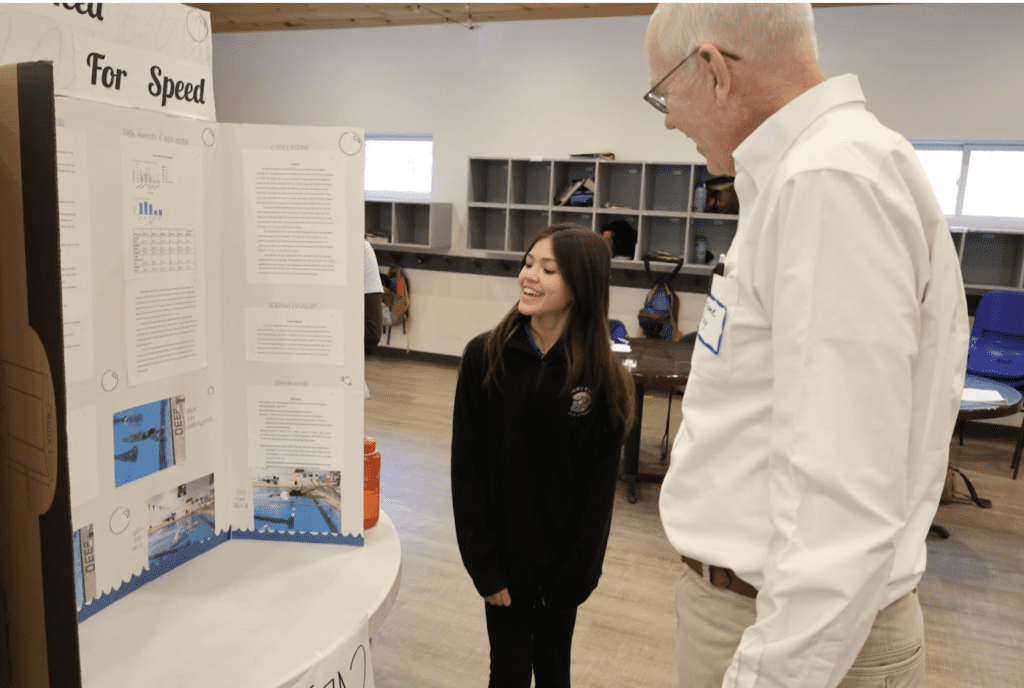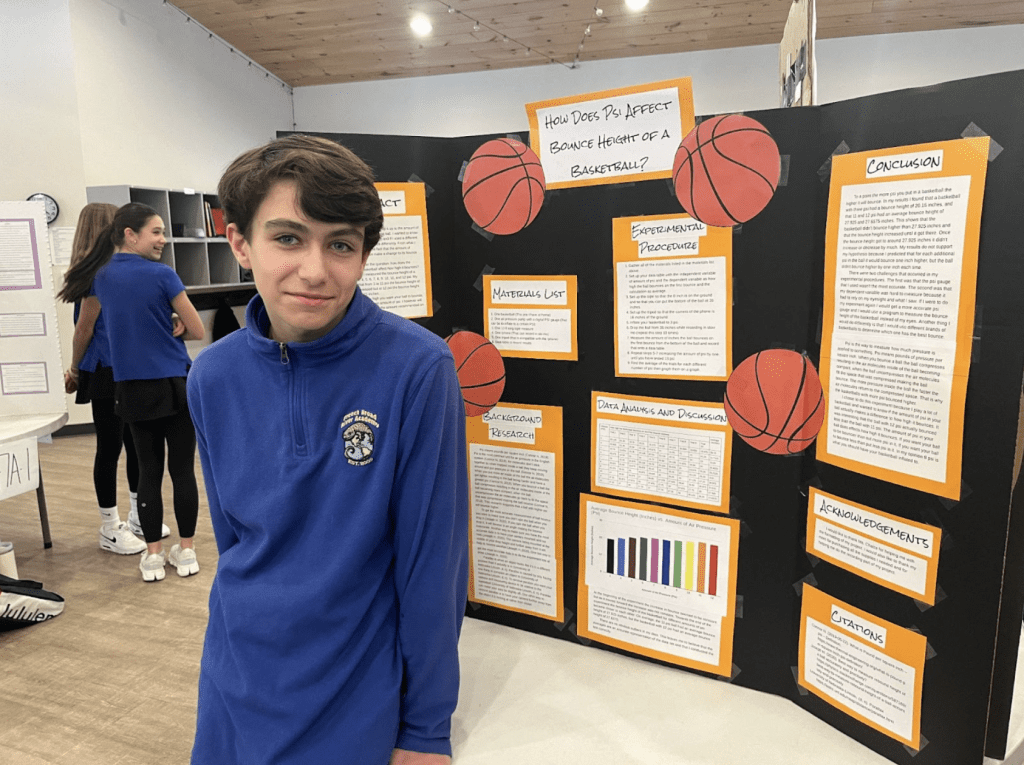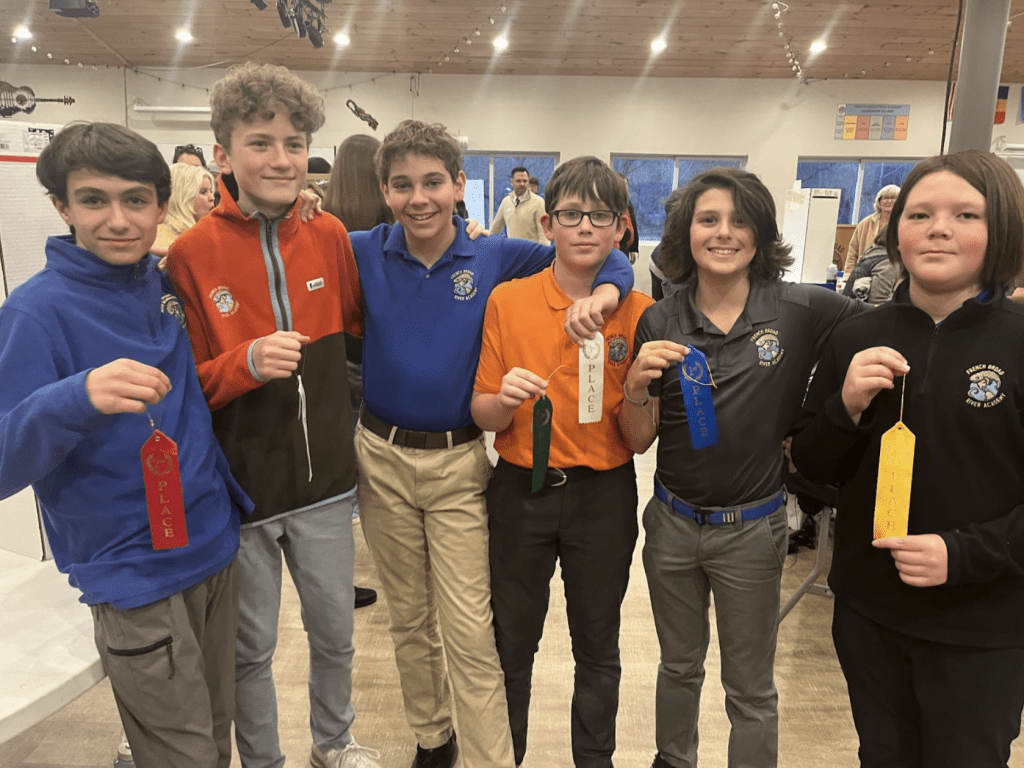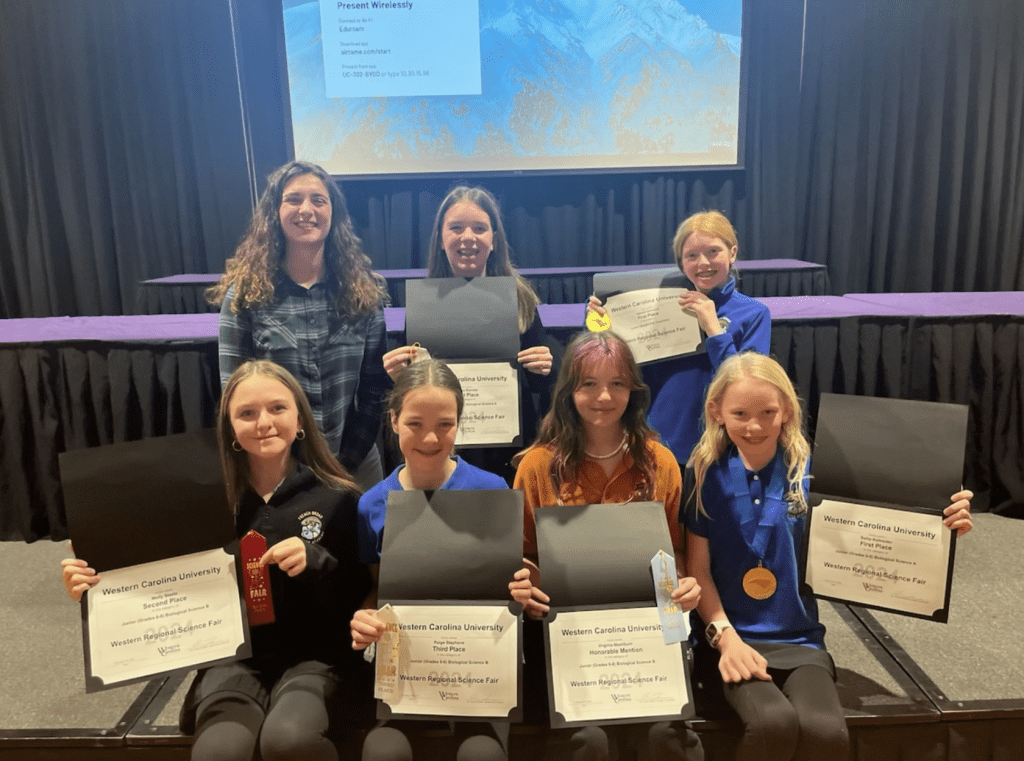By Lexi Chaize, Boys Program Science Teacher
Experiential learning has been a cornerstone of the FBRA curriculum since we opened our doors in 2009. The 7th Grade Science Fair is one of the many ways we encourage our students to be creative, think independently, and actively engage with concepts, materials, and environments in order to deepen their understanding and develop practical skills. The Science Fair gives our students the opportunity to explore topics that are of interest to them and take a deep dive into the scientific method.


On January 29th, 7th graders from the FBRA Girls and Boys programs came together at the North Campus to present their experiments to volunteer judges, families, students and members of the community, sharing their methods, findings, and answering questions. The judges scored the students on their project design, implication, poster presentation, and ability to answer questions. The top six students from each program were invited to participate in the Regional Science Fair at Western Carolina University. Winners from our Girls Program traveled to WCU on February 9th to compete and all six girls placed in the regional competition. The boys program were on their winter overnight trip during the regional science fair, hindering their ability to attend.
The Scientific Process
Students began their projects at the end of October and spent three months diving into the steps of the scientific method. They began the process by coming up with a question of interest that could be tested. Some examples of questions from this year’s science fair were: “Does the Five Second Rule Work?” “How does PSI affect the bounce height of a ball?” Once students decided on a question they wanted to find an answer to, they began the scientific method cycle: ask a question, research the topic, create a hypothesis, experiment, analyze data, report findings.
Throughout the project based assignment, students completed smaller assignments to build up towards their presentation at the science fair including writing a background research paper. They also created their own materials list and procedure steps, designing their whole experiment from scratch. Students conducted their experiments at home over our winter break. Upon their return to school, they analyzed their own data by creating tables and graphs, and writing a conclusion paper discussing their findings. The culmination of their 3 months of hard work was presenting their findings at the science fair.
Each 7th grade student worked incredibly hard on their science fair project. The students put time and energy inside and outside of the classroom to complete their projects and prepare for the Science Fair. All students should be celebrated for their hard work.


And the Winner Is…
Congratulations to the top 6 students from both programs:
- 1st place: Eric Buraglia “Sandbag!”
- 2nd place: Owen Hartley “How does PSI affect bounce height of a basketball?”
- 3rd place tie: Silas Ratliff: “Which metal is the most resistant to corrosion?” and Thomas Traywick: “How does voltage affect electrolysis?”
- 4th place: Wilson Virant “What is the best liquid for watering plants?”
- 5th place: Gray Rybak: “Aircraft Efficiency”
Girls WNC Regional Winners:
- Sallie Kaltreider – 1st in Biology A, “How Would You Like to be Remembered? An Insect’s Journey Through the Afterlife”
- Hannah Dunnuk – 1st in Chemistry, “Icing Icing Baby”
- Virginia Mashburn – Honorable mention in Biology B, “Liar Liar Pants On Fire”
- Paige Stephens – 3rd in Biology B, “Wild Wisdom”
- Molly Steele – 2nd in Biology B, “Are Sugar Rushes Real”
- Audrey Ramsey – 3rd in Biology A, “Bird Seed Preferences In Winter”
